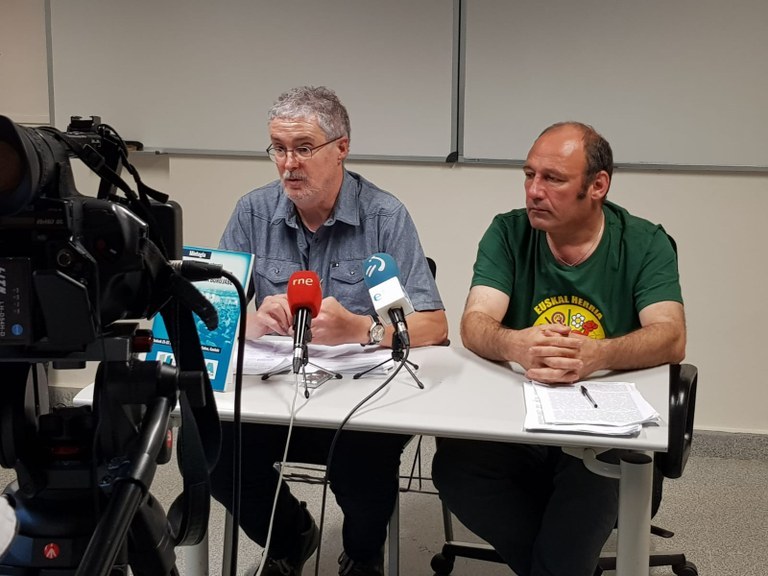Etcheverry: “The strategic route through which the sovereignty of Euskal Herria can be built has been anticipated”

Etcheverry referred to the initiatives that have arisen in Iparralde and that have been based on “a very specific working method that has allowed the progressive transformation of reality, consciences and outlooks”. Accordingly, he emphasised the work regarding the Euskal Herriko Laborantza Ganbara (Chamber of Agriculture), the Basque Country agglomeration Community and more recently, the mobilisation for ETA’s disarmament in Baiona.
Etcheverry pointed out that the method consisted of articulating two important components: On the one hand, the demands aimed at the French State, formulated around targets that could bring together large crowds and that are moving in the right direction, although their level or contents did not correspond exactly to what the ‘abertzales’ or Basque patriots were demanding; and on the other hand, the construction of initiatives, structures, projects that allows a start to be made in putting into practice the content of these demands, without waiting for the State to give them a positive response.
He recalled the mobilisation in favour of ETA’s disarmament between December, 2016 and April, 2017. In his opinion, “in Louhoussoa, people started to specifically carry out a reasonable and useful action, which most of society was demanding of the two states”. In this context, “faced with this mobilisation and the determination of the agents, ready to continue carrying out in practice what was being demanded of the States, the attitude of Paris changed; the lines moved and a new situation was created, which allowed not only ETA’s total disarmament, but also a more global and positive evolution of a situation that seemed to be seriously blocked until this moment.
For Etcheverry, this is how the strategic route through which the sovereignty of Euskal Herria can be built has been anticipated. “Today many of us want to address reasonable, useful demands to the two states and we, who suffer their incapacity to listen to these demands, or simply understand them, are not ready to put up with their systematic rejection”. Accordingly, he detailed the needs for social protection, for the fight against job insecurity and exclusion, for a reduction in inequality; the urgent need to introduce production, consumption, transport and territorial arrangement means that allow people to live better; at the same time reducing our ecological impact, preserving biodiversity or people’s health, and stop altering the climate; the wish to standardise the use of Euskera (the Basque language) and solidarity and the welcoming, particularly towards people who are forced to flee from their lands of birth, amongst others.
For Etcheverry, “Basques or not, ‘abertzales’ and ‘non-abertzales’, we are many, different people who live in Euskal Herria and wish to take back the control over our lives. The current system increasingly deprives us in all areas: climate, land, water, air, housing, food, energy, history, culture, socialisation...The project consists of basing ourselves on the potential and capacity of attraction and on the mobilisation of a projected territory and of a Community that is called Euskal Herria, to take back the control over our living conditions. It is the response that is best adapted, and has most potential when facing up to the great challenges of our times. This view of sovereignty can attract the amount of people with the sufficient determination to win the battle, for the good of everyone”.
